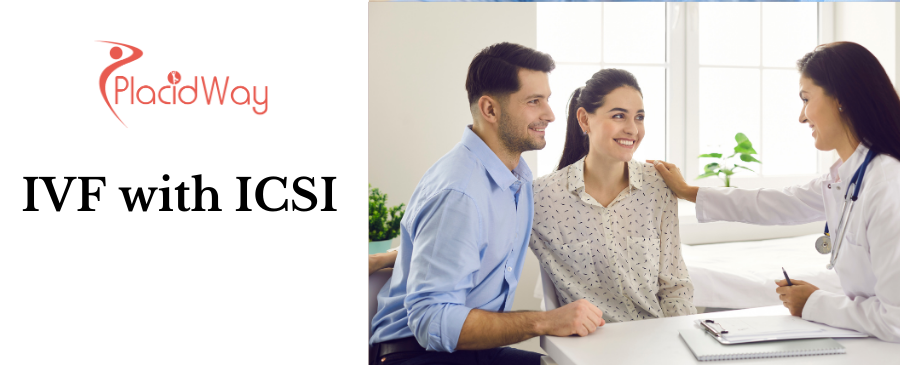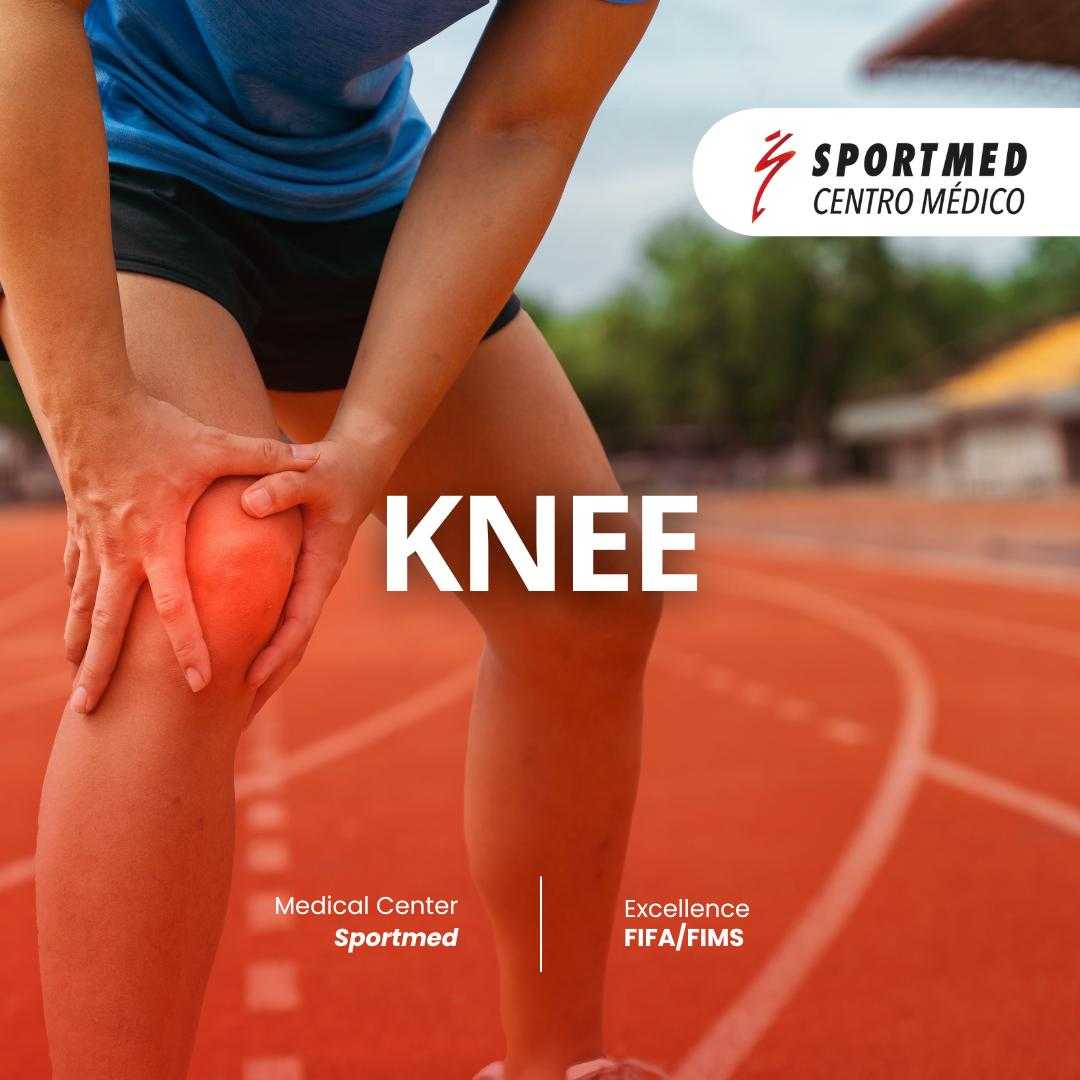
Unlock Your Path to Parenthood: Understanding IVF with ICSI Abroad
Embarking on the journey to parenthood can be filled with hope, anticipation, and sometimes, challenges. For many couples facing infertility, In Vitro Fertilization (IVF) offers a beacon of hope. When male factor infertility or specific fertilization issues are present, a powerful enhancement called Intracytoplasmic Sperm Injection (ICSI) often joins the IVF process. This cutting-edge technique significantly boosts the chances of successful fertilization by directly injecting a single healthy sperm into each egg.
Globally, couples are increasingly looking beyond their borders for high-quality, affordable IVF with ICSI treatments. Medical tourism has opened doors to world-class fertility clinics in countries known for their advanced technology, experienced specialists, and compassionate care, often at a fraction of the cost found in Western nations. If you've been searching for "affordable IVF abroad," "ICSI treatment overseas," or "best fertility clinics for male factor infertility," you're in the right place. This comprehensive guide will walk you through everything you need to know about IVF with ICSI, from understanding the condition to choosing your ideal medical tourism destination, ensuring you make an informed decision on your path to building a family.
What are the Symptoms of Infertility that May Lead to IVF with ICSI?
Infertility is defined as the inability to achieve pregnancy after a year of regular, unprotected sexual intercourse (or six months if the woman is over 35). While this is the overarching symptom, specific indicators can point towards the need for advanced reproductive technologies like IVF with ICSI. For women, symptoms might include irregular or absent menstrual cycles, pelvic pain (indicating conditions like endometriosis), or a history of pelvic inflammatory disease. For men, though often asymptomatic, issues like low libido or erectile dysfunction can be signs. More commonly, male infertility is diagnosed through semen analysis, revealing a low sperm count, poor sperm motility (movement), or abnormal sperm morphology (shape).
Many couples only discover these underlying issues after struggling to conceive naturally. If you've been wondering "why can't I get pregnant?" or "what are the signs of male infertility?", a comprehensive fertility evaluation is the first crucial step. This often involves blood tests, imaging for women, and a detailed semen analysis for men. Recognizing these silent symptoms is vital for seeking timely intervention and exploring effective treatments like IVF with ICSI.
What Are the Causes and Risk Factors for Infertility Requiring IVF with ICSI?
The need for IVF with ICSI often stems from specific causes and risk factors, particularly those related to male infertility or challenges with standard IVF fertilization. Here’s a breakdown of common reasons:
- Severe Male Factor Infertility: This is the most common reason for ICSI. It includes:
- Oligozoospermia: Very low sperm count.
- Asthenozoospermia: Poor sperm motility (sperm that don't swim well).
- Teratozoospermia: High percentage of abnormally shaped sperm (poor morphology).
- Azoospermia: Absence of sperm in the ejaculate, requiring surgical sperm retrieval (e.g., TESE, PESA).
- Anti-sperm antibodies: Immune system cells that attack sperm.
- Ejaculatory dysfunction or blockages: Preventing sperm release.
- Previous Fertilization Failure with Standard IVF: If eggs failed to fertilize or fertilized poorly in a prior conventional IVF cycle.
- Low Number of Eggs Retrieved: When only a few eggs are available, ICSI helps ensure each egg has the best chance of fertilization.
- Using Frozen Sperm: Sperm that has been frozen and thawed may have reduced quality, benefiting from ICSI.
- Preimplantation Genetic Testing (PGT): ICSI is often recommended when PGT is planned, as it helps prevent contamination of the embryo with extraneous sperm.
- Unexplained Infertility: In some cases, ICSI may be used empirically when no clear cause is identified, though its benefit here is debated.
Risk factors for male infertility include age, certain medical conditions (e.g., undescended testicles, varicocele, infections), lifestyle choices (smoking, excessive alcohol, drug use), exposure to toxins, and obesity. Understanding these "causes of male infertility" and "risk factors for IVF" is crucial for appropriate treatment planning.
What Types of Fertility Treatments Are Available, and How Does IVF with ICSI Fit In?
The landscape of fertility treatments is diverse, catering to various causes of infertility. Simpler treatments include ovulation induction with medication (e.g., Clomid) and Intrauterine Insemination (IUI), where sperm is directly placed into the uterus. When these methods are unsuccessful, or when more significant barriers to conception exist, In Vitro Fertilization (IVF) becomes the primary advanced option.
Standard IVF involves stimulating the ovaries to produce multiple eggs, retrieving them, and then fertilizing them with sperm in a lab dish. The resulting embryos are cultured and then transferred into the uterus.
IVF with ICSI takes the IVF process a step further, particularly at the fertilization stage. Instead of placing sperm and eggs together in a dish and allowing natural fertilization, a single, healthy sperm is meticulously selected and injected directly into the cytoplasm of each mature egg. This bypasses many common barriers to fertilization, making it highly effective for severe male factor infertility, as well as cases with previous IVF fertilization failure, or when using surgically retrieved sperm. It’s often considered the gold standard for "ICSI IVF treatment."
The "IVF ICSI procedure steps" typically involve:
- Ovarian Stimulation: Medications are given to stimulate the ovaries to produce multiple eggs.
- Egg Retrieval: A minor surgical procedure to collect the mature eggs.
- Sperm Collection: Sperm is collected from the male partner, or surgically retrieved if needed.
- ICSI Fertilization: A single sperm is injected into each egg under a high-powered microscope.
- Embryo Culture: The fertilized eggs (now embryos) are cultured in the lab for 3-5 days.
- Embryo Transfer: One or more healthy embryos are transferred into the woman's uterus.
- Pregnancy Test: A blood test is performed about two weeks later to check for pregnancy.
Who Is Eligible for IVF with ICSI? Is it Right for You?
Deciding if IVF with ICSI is the right path requires a thorough evaluation by a fertility specialist. The procedure is typically recommended for specific indications:
- Severe Male Factor Infertility: This is the primary indication, including very low sperm count (oligozoospermia), poor sperm motility (asthenozoospermia), abnormal sperm shape (teratozoospermia), or no sperm in the ejaculate requiring surgical retrieval (azoospermia). If you're searching "who needs ICSI IVF?", these are the main candidates.
- Previous IVF Fertilization Failure: If a couple underwent conventional IVF and experienced very low or no fertilization of eggs.
- Low Egg Yield: When only a small number of eggs are retrieved during the IVF cycle, ICSI maximizes the chance of fertilizing each one.
- Using Frozen Sperm: Sperm that has been cryopreserved and thawed may benefit from ICSI due to potential reduced viability.
- Preimplantation Genetic Testing (PGT): ICSI is often used to prevent contamination of the embryo by residual sperm, which could interfere with genetic testing results.
- Unexplained Infertility (sometimes): While debated, some clinics may recommend ICSI in cases where no clear cause of infertility has been found, particularly after multiple failed attempts.
It's important to have an open discussion with your fertility doctor about your specific diagnosis, medical history, and previous treatment outcomes to determine if "Is ICSI worth it?" for your situation.
What is the Recovery Time and What Can You Expect After IVF with ICSI?
The "recovery time after IVF with ICSI" primarily pertains to the egg retrieval procedure for the female partner. This is a minor surgical procedure performed under sedation. Most women experience mild cramping, bloating, and spotting for a day or two afterward. Full physical recovery usually occurs within 24-48 hours, though strenuous activities should be avoided for about a week.
The male partner’s recovery, if sperm is collected non-surgically, is immediate. If surgical sperm retrieval (like TESE or PESA) is performed, recovery can take a few days, involving some discomfort and requiring pain management.
Beyond the physical aspects, the emotional and psychological "expectations after IVF with ICSI" are significant. The period between embryo transfer and the pregnancy test, often called the "two-week wait," can be intensely anxious. It's crucial to manage stress, practice self-care, and lean on support systems. Many clinics offer counseling to help couples navigate this emotional rollercoaster. While waiting, mild symptoms like bloating or light spotting can occur and aren't necessarily indicative of success or failure. Clinics typically advise against strenuous exercise, hot baths, or intercourse during this time.
What Are the Risks and Side Effects of IVF with ICSI?
While IVF with ICSI is generally safe and highly effective, like any medical procedure, it carries potential "risks of ICSI" and side effects:
- Ovarian Hyperstimulation Syndrome (OHSS): This is a rare but serious complication from ovarian stimulation, causing swollen, painful ovaries, bloating, nausea, and in severe cases, fluid buildup in the abdomen and chest. Modern protocols aim to minimize this risk.
- Multiple Pregnancies: Transferring multiple embryos increases the chance of twins, triplets, or more. This carries higher risks for both mother and babies (e.g., premature birth, low birth weight). Elective single embryo transfer (eSET) is often recommended to mitigate this.
- Ectopic Pregnancy: When an embryo implants outside the uterus, usually in a fallopian tube. This is a medical emergency.
- Miscarriage: The risk of miscarriage is similar to natural conception, though slightly higher in older women.
- Procedure-Related Risks:
- Egg Retrieval: Bleeding, infection, or damage to nearby organs (e.g., bowel, bladder) are rare but possible.
- Embryo Transfer: Mild cramping, spotting.
- Emotional Stress: The physical, emotional, and financial toll of fertility treatment can be significant.
- ICSI-Specific Risks:
- Egg Damage: A very small percentage of eggs may be damaged during the injection process, preventing fertilization.
- Genetic Risks: There's ongoing research into whether ICSI carries a slightly increased risk of certain rare genetic conditions or birth defects, particularly those linked to severe male factor infertility that might be passed on to male offspring. However, large-scale studies have largely shown that the overall risk of birth defects in ICSI pregnancies is comparable to those conceived naturally or via conventional IVF.
Your fertility specialist will discuss all potential risks thoroughly and help you understand them in the context of your personal health and medical history.
Worldwide Cost Comparison for IVF with ICSI
One of the most compelling reasons couples explore "ICSI treatment cost abroad" is the substantial difference in pricing. The cost of a single IVF with ICSI cycle can range dramatically depending on the country, clinic, and specific services included (e.g., medication, genetic testing, embryo freezing).
Here’s a general comparison to give you an idea of the "affordable IVF ICSI overseas" landscape (prices are estimates and can vary):
| Country | Estimated IVF with ICSI Cost (USD) | Notes |
|---|---|---|
| USA | $15,000 - $30,000+ | High cost, advanced technology, limited insurance coverage. |
| Canada | $10,000 - $18,000+ | Costs vary by province, not fully covered by public healthcare. |
| UK | $8,000 - $15,000+ | NHS funding varies; private treatment can be expensive. |
| Turkey | $3,000 - $6,000 | Popular for affordability, high quality, strong success rates. |
| India | $2,500 - $5,000 | Very competitive pricing, large number of clinics, experienced doctors. |
| Mexico | $5,000 - $9,000 | Convenient for US patients, high-quality care. |
| Czech Republic | $3,500 - $6,500 | Excellent reputation, strict regulations, good success rates. |
| Spain | $5,000 - $9,000 | Leading European destination, strong regulations, donor options. |
| Greece | $4,000 - $7,000 | Growing medical tourism hub, relaxed regulations, good facilities. |
These costs typically include the core IVF with ICSI cycle, but may not cover medications, pre-cycle testing, advanced embryo selection (like PGT), or freezing services. Always request a detailed, itemized quote from any clinic you consider.
Why Consider IVF with ICSI Abroad for Fertility Treatment?
The decision to seek "IVF with ICSI abroad" is a deeply personal one, driven by several compelling advantages:
- Significant Cost Savings: As seen in the cost comparison, the price difference can be life-changing, making treatment accessible to those who couldn't afford it domestically. This is often the primary driver for "traveling for fertility treatment."
- Reduced Waiting Times: In many countries, public healthcare systems or popular clinics have long waiting lists. Abroad, you can often start treatment much sooner, which is critical for fertility where age plays a significant role.
- Access to Advanced Technology and Expertise: Many international clinics boast state-of-the-art facilities, innovative techniques, and highly specialized doctors whose expertise is on par with, or even surpasses, those in Western countries.
- Specific Donor Programs: Some countries have different regulations regarding sperm or egg donation, offering broader options (e.g., anonymous donors, specific ethnic backgrounds) that might not be available or permitted in your home country.
- Privacy and Anonymity: For some couples, undergoing such a personal and sensitive treatment away from their usual social circles offers a sense of privacy and reduced pressure.
- Combined with a Vacation: While the primary goal is treatment, the opportunity to combine it with a relaxing getaway can reduce stress, which is often beneficial for fertility.
For those feeling blocked by financial constraints or long waits at home, looking internationally provides a powerful alternative to "affordable IVF abroad."
Which Countries Offer the Best Value for IVF with ICSI?
When searching for "best countries for IVF with ICSI," several destinations consistently emerge as leaders in medical tourism for fertility, balancing quality, cost, and patient experience:
- Turkey: Known for its modern clinics, highly skilled doctors, and competitive pricing, particularly in cities like Istanbul. Success rates are comparable to European averages.
- India: Offers some of the most affordable IVF with ICSI packages globally, with numerous clinics providing advanced care, especially in metropolitan areas.
- Mexico: A convenient option for North American patients, Mexico provides high-quality clinics near the border or in popular tourist destinations, often with bilingual staff.
- Czech Republic: A highly respected European destination, particularly for its strict regulatory oversight, advanced labs, and excellent success rates. It's especially popular for those seeking donor options.
- Spain: A European leader in reproductive medicine, offering a vast array of clinics, robust regulations, and a good environment for those needing donor eggs or sperm, though costs might be slightly higher than Eastern European options.
- Greece: Growing in popularity, Greece offers a combination of good quality care, relatively relaxed regulations (e.g., age limits for women), and beautiful surroundings, contributing to a less stressful experience.
Each country has its unique advantages regarding legality, donor availability, and cultural aspects. It's essential to research specific clinics within these countries and consider what factors are most important to your personal "IVF ICSI success rates" journey.
What to Expect When Traveling for IVF with ICSI Abroad?
Undergoing "IVF with ICSI treatment overseas" involves more than just the medical procedure itself. Here's what you can generally expect:
- Initial Consultations (Remote): Most clinics will offer virtual consultations to discuss your medical history, diagnosis, and treatment plan before you travel. This helps ensure you're a suitable candidate and allows for initial questions.
- Travel and Accommodation: You'll need to arrange flights, visas (if necessary), and accommodation for your stay. The duration typically ranges from 2-4 weeks, depending on the specifics of your cycle and if you need initial monitoring in your home country before traveling.
- Pre-cycle Planning: Your clinic will provide a detailed treatment calendar, including medication protocols. Some initial monitoring (e.g., blood tests, ultrasounds) might be done in your home country before departure to optimize timing.
- Local Monitoring and Procedures: Once you arrive, you'll undergo regular monitoring at the clinic (ultrasounds, blood tests) for ovarian stimulation, followed by egg retrieval, sperm collection, ICSI, embryo culture, and finally, embryo transfer.
- Language and Communication: Many medical tourism clinics have multilingual staff, particularly English speakers. Confirm this beforehand to ensure smooth communication.
- Post-Procedure Care: After embryo transfer, you'll typically remain in the vicinity for a few days before flying home. The pregnancy test is usually performed about two weeks after transfer, often back in your home country.
- Logistical Support: Many clinics or medical tourism facilitators (like PlacidWay) offer assistance with travel arrangements, accommodation, and local transport to make your journey smoother.
Thorough planning and clear communication with your chosen clinic are paramount for a successful and less stressful experience when "traveling for fertility treatment."
How to Ensure Safety and Quality for IVF with ICSI Abroad?
Ensuring the "safety and quality of IVF with ICSI abroad" is paramount. While cost savings are attractive, compromising on safety is never an option. Here's how to conduct your due diligence:
- Accreditation and Licensing: Check if the clinic is accredited by national or international bodies (e.g., ISO, JCI) and licensed by the local health authorities. This indicates adherence to established quality and safety standards.
- Doctor Qualifications and Experience: Research the fertility specialists. Look for board certifications, specialized training in reproductive endocrinology, and years of experience specifically with IVF and ICSI.
- Success Rates: Request transparent, verified success rates. Be wary of clinics that promise unusually high rates without evidence. Compare their rates to national averages or reputable registries (e.g., ESHRE for Europe). Understand how they calculate their rates (e.g., per cycle started vs. per embryo transfer).
- Clinic Facilities and Technology: Inquire about the lab facilities, equipment, and technologies used (e.g., time-lapse incubators, advanced embryo selection methods). A state-of-the-art embryology lab is critical for ICSI success.
- Patient Reviews and Testimonials: Seek out unbiased patient reviews on independent forums and platforms. Ask for contact information for previous international patients if possible.
- Transparent Pricing: Get a detailed, itemized quote that includes all potential costs (medications, consultations, freezing, PGT if applicable). Avoid clinics with hidden fees.
- Legal and Ethical Framework: Understand the local laws regarding fertility treatment, especially concerning donor eggs/sperm, embryo storage, and age limits.
- Communication and Support: Assess the clinic's responsiveness and clarity in communication. Do they offer dedicated international patient coordinators? Is language support readily available?
Leveraging a reputable medical tourism facilitator can also streamline this process, as they often have pre-vetted networks of high-quality clinics, helping you find "best fertility clinics for male factor infertility" that meet stringent standards.
What Are Patient Success Stories from IVF with ICSI Abroad?
The true measure of IVF with ICSI abroad lies in the countless "patient success stories" and the families created through international fertility treatment. While specific personal stories are unique, common themes resonate:
- Financial Relief Leading to Opportunity: Many couples share how prohibitive domestic costs made treatment seem impossible. Traveling abroad unlocked access to multiple cycles, allowing them to finally conceive without the crushing financial burden. For example, a couple from the US struggling with male factor infertility found success in Turkey, saving over $15,000 on their treatment, which enabled them to afford subsequent cycles and eventually welcome their son.
- Overcoming Specific Infertility Challenges: Patients with severe male factor infertility often express gratitude for ICSI, which directly addressed their specific diagnosis. A couple from the UK, after multiple failed conventional IVF cycles, found a clinic in the Czech Republic that specialized in ICSI, leading to a successful pregnancy after years of trying.
- Access to Advanced Techniques: Some success stories come from couples who needed specific genetic testing (PGT) or specialized embryology techniques that were more accessible or affordable abroad.
- Compassionate and Comprehensive Care: Beyond the medical success, many patients recount feeling more supported and less like "just another number" at international clinics, often praising the personalized attention and emotional care received. One couple from Canada described their experience in Spain as "holistic," feeling understood and cared for throughout their entire journey, culminating in their daughter's birth.
- The Joy of Family: Ultimately, these stories are about the profound joy of holding a baby conceived through perseverance and the help of dedicated medical professionals worldwide. They offer hope and inspiration to others embarking on this journey, demonstrating that distance and borders don't have to be barriers to building a family.
These narratives underscore that "IVF ICSI success rates" are not just statistics but represent real lives and fulfilled dreams, often made possible by the global landscape of medical tourism.
Take the Next Step with PlacidWay
Ready to explore treatment options abroad? Discover top clinics, compare prices, and get a free quote tailored to your needs with PlacidWay.
Fertility Treatment Abroad, Best Fertility Clinics










Share this listing